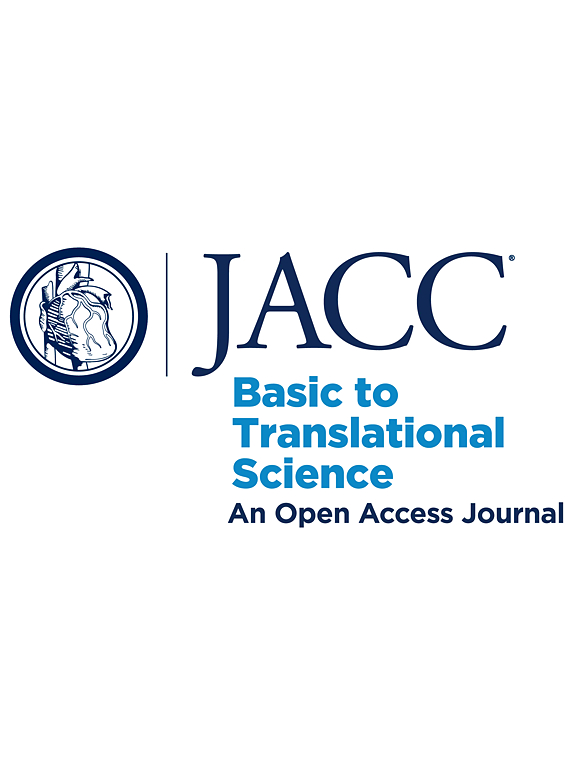Proteome-Wide Genetic Investigation of Large Artery Stiffness
IF 8.4
1区 医学
Q1 CARDIAC & CARDIOVASCULAR SYSTEMS
引用次数: 0
Abstract
The molecular mechanisms contributing to large artery stiffness (LAS) are not fully understood. The aim of this study was to investigate the association between circulating plasma proteins and LAS using complementary proteomic and genomic analyses. A total of 106 proteins associated with carotid-femoral pulse-wave velocity, a noninvasive measure of LAS, were identified in 1,178 individuals from the Asklepios study cohort. Mendelian randomization analyses revealed causal effects of 13 genetically predicted plasma proteins on pulse pressure, including cartilage intermediate layer protein-2, high-temperature requirement A serine peptidase-1, and neuronal growth factor-1. These findings suggest potential novel therapeutic targets to reduce LAS and its related diseases.
大动脉僵化的蛋白质组全基因研究
导致大动脉僵化(LAS)的分子机制尚不完全清楚。本研究旨在通过蛋白质组和基因组互补分析,研究循环血浆蛋白与大动脉僵化之间的关联。在 Asklepios 研究队列中的 1178 人中,共鉴定出 106 种与颈动脉-股动脉脉搏波速度(LAS 的无创测量指标)相关的蛋白质。孟德尔随机分析显示,13 种基因预测的血浆蛋白对脉压有因果效应,包括软骨中间层蛋白-2、高温要求 A 丝氨酸肽酶-1 和神经元生长因子-1。这些发现为减少 LAS 及其相关疾病提供了潜在的新治疗靶点。
本文章由计算机程序翻译,如有差异,请以英文原文为准。
求助全文
约1分钟内获得全文
求助全文
来源期刊

JACC: Basic to Translational Science
CARDIAC & CARDIOVASCULAR SYSTEMS-
CiteScore
14.20
自引率
1.00%
发文量
161
审稿时长
16 weeks
期刊介绍:
JACC: Basic to Translational Science is an open access journal that is part of the renowned Journal of the American College of Cardiology (JACC). It focuses on advancing the field of Translational Cardiovascular Medicine and aims to accelerate the translation of new scientific discoveries into therapies that improve outcomes for patients with or at risk for Cardiovascular Disease. The journal covers thematic areas such as pre-clinical research, clinical trials, personalized medicine, novel drugs, devices, and biologics, proteomics, genomics, and metabolomics, as well as early phase clinical trial methodology.
 求助内容:
求助内容: 应助结果提醒方式:
应助结果提醒方式:


